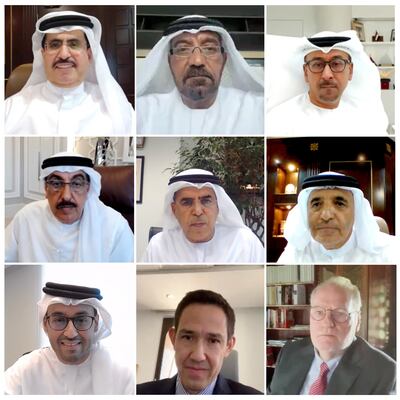Dubai reduced its carbon emissions by 21 per cent in 2021, in line with its ambitions to develop a low-carbon economy, the Dubai Supreme Council of Energy said on Monday.
The emirate achieved this by increasing the share of solar energy and enhancing the operational efficiency in factories and facilities. It also carried out waste recycling in power and water production, industry, ground transport and waste treatment, the council said in a statement.
The details were revealed during a meeting of the council, led by Sheikh Ahmed Al Maktoum, which reviewed the emirate’s efforts to reduce carbon emissions.
The move is part of the Dubai Carbon Abatement Strategy 2030, which aims to reduce 30 per cent of carbon emissions in the emirate by the end of 2030 and is aligned with the UAE’s efforts to achieve net zero carbon emissions by 2050.
“The meeting reviewed our road map and plans that include national initiatives and strategies to achieve net-zero carbon emissions and consolidate a low-carbon economy,” said Saeed Al Tayer, vice chairman of the Dubai Supreme Council of Energy.
Among the initiatives currently being undertaken in the emirate is the Dubai Clean Energy Strategy 2050, which seeks to ensure that 100 per cent of the emirate's power production capacity is from clean energy sources by 2050.
Dubai's planned Dh40 billion ($10.9bn) investment in electricity and water projects over the next five years will focus on renewables, clean energy, electricity and water transmission and distribution networks to meet growing demand in the emirate.
The investment plans, announced by the Dubai Water and Electricity Authority, come as energy demand in Dubai continues to grow, increasing 6.3 per cent year on year in the first half of 2022, driven by sustained economic recovery in the emirate.
Demand for energy in the emirate during the first six months of this year reached 23,096 gigawatt hours, Dewa said in July.
The utility is developing the Mohammed bin Rashid Al Maktoum Solar Park, the largest single-site solar project in the world, which will have a capacity of 5,000 megawatts upon completion in 2030, with a total investment of Dh50bn.
“The development and implementation of the existing programmes and projects had a positive and tangible impact, reflected in the carbon emission reduction rates over the past 10 years," said Mr Al Tayer.
"This highlighted the efforts made by the relevant authorities that support a sustainable green economy and the UAE’s vision to achieve net-zero carbon emissions."

During the meeting, the council also discussed a plan submitted by Emirates Gas Company, an Enoc subsidiary, to enhance current gas cylinders to advanced ones in terms of safety and reduced weight.
“The current plan to shift to using the advanced cylinders ensures better efficiency and more safety for consumers," said Ahmed Al Muhairbi, secretary general of the Dubai Supreme Council of Energy.
"Emirates Gas has introduced 9,000 advanced cylinders that consumers in Dubai have been satisfied with over the past years."









